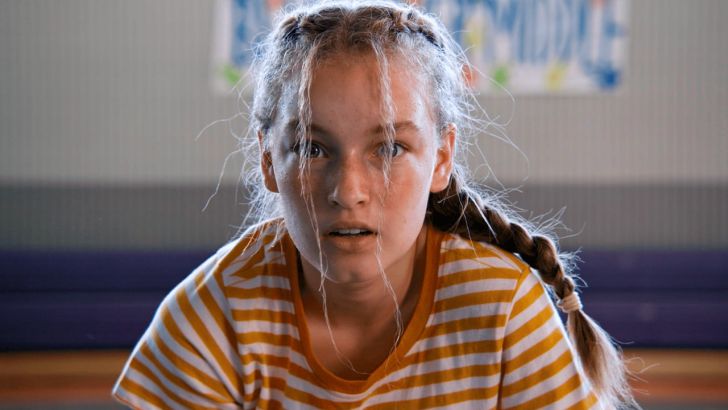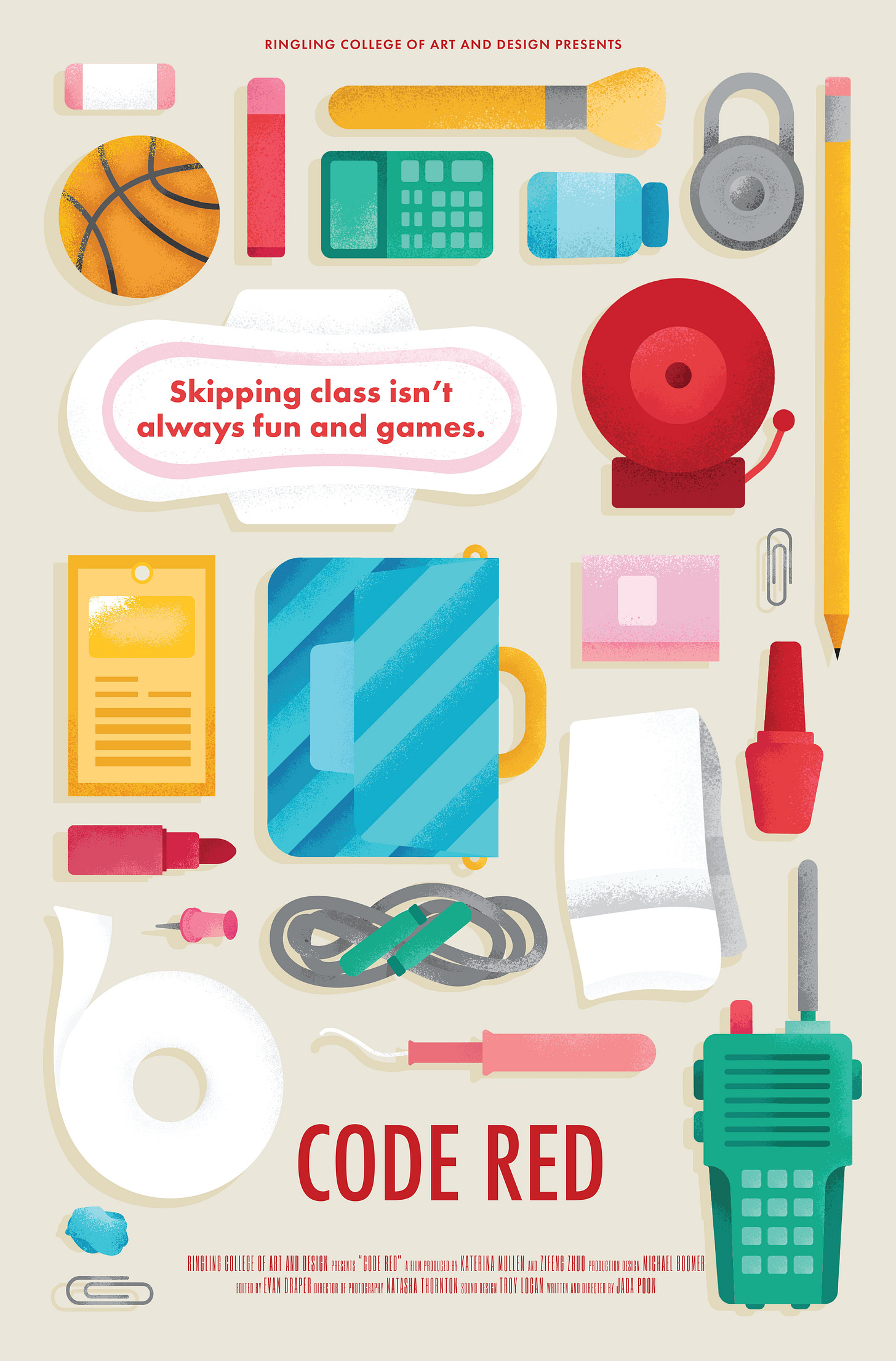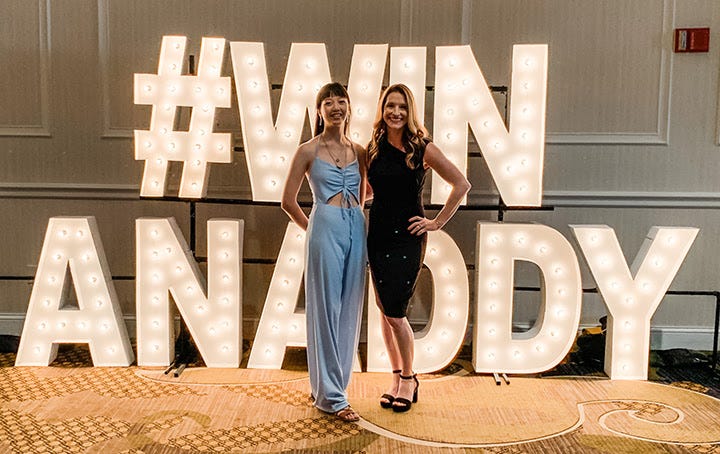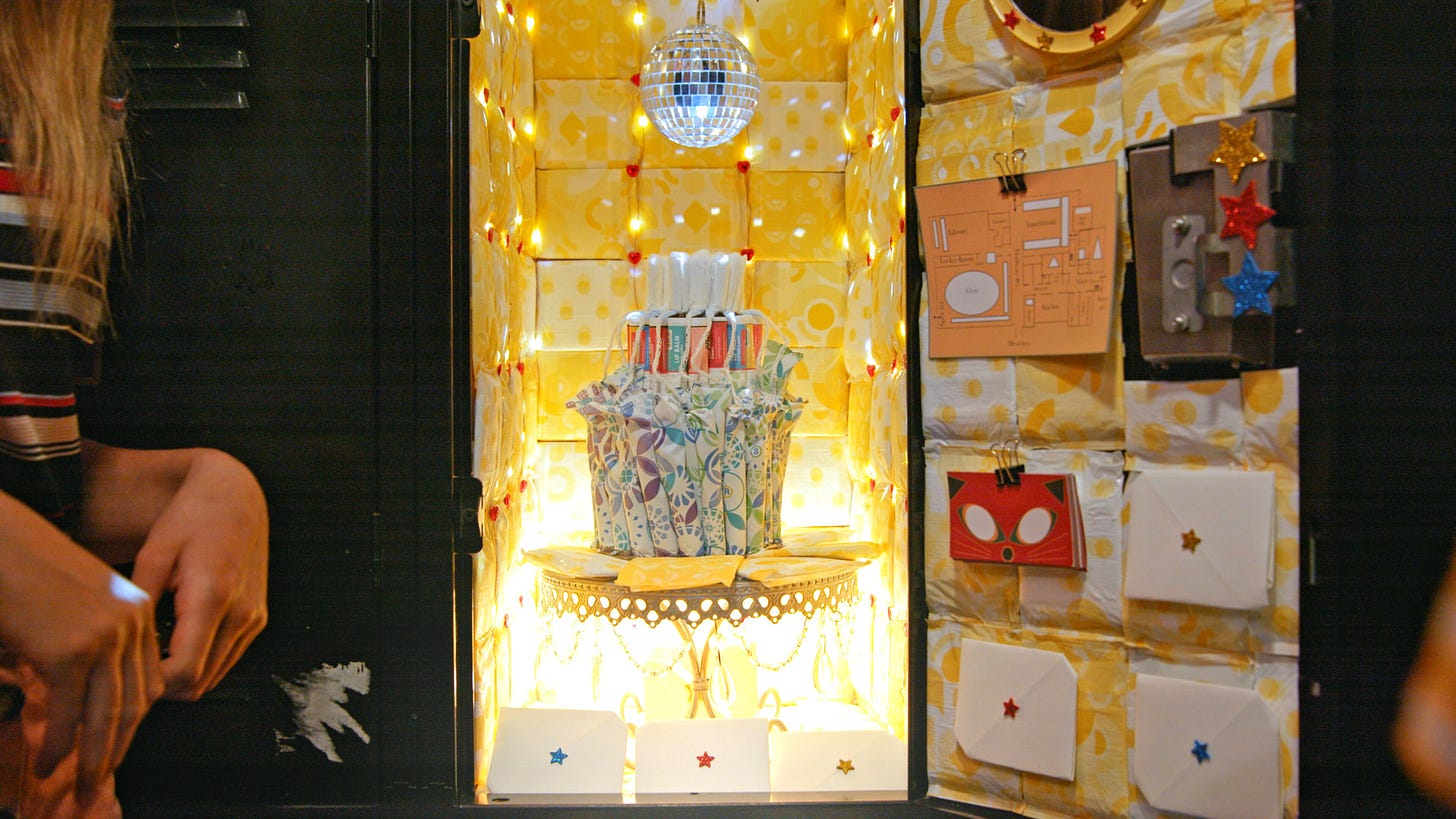Period poverty the focus of new award-winning short film Code Red
A poster advertising short film Code Red (Courtesy: Ringling College)
A new short film is shedding light on the issue of period poverty — the lack of access to and affordability for menstrual products — which frequently leads to educational and economic inequality.
Code Red was written by Jada Wing Hang Poon, a film major at Ringling College of Art and Design in Sarasota, Florida.
The film follows sixth-graders Karman (played by Madison Paige Baranoski) and Tiffany (played by Jaida Leigh Miller) confronting the lack of easy access to menstrual products in schools.
When Karman gets her period for the first time at school, she skips class with her best friend to find menstrual products — a reality that many young people who menstruate are forced to navigate.
The response to the film, Poon says, has been overwhelmingly positive.
"Honestly, I’m very happy that people can generally relate to [Code Red] regardless of their gender," she told The Blueprint in an interview earlier this summer. "You know exactly what [I’m] referring to when you’re watching the film."
Poon came up with the concept for the film back in 2019 during a screenwriting class in her junior year.
However, when it came to writing her own screenplay, Poon encountered writer's block. Her period didn't help matters either.
That’s when she got an idea.
"I was frustrated and I wanted to make everyone else in my class that were all male – including the teacher – feel how it felt," she said.
But Poon’s plans to get Code Red off the ground came to a screeching halt when in-person learning was cancelled after spring break in March 2020. The film was not only delayed but scrapped altogether. Ultimately, Poon graduated without writing her senior thesis, but she did accomplish something even more impressive.
She said that they were able to get donors who were also interested in the story to provide the funding to get production on Code Red back up and running. They completed production in August 2021 after five days of shooting.
Eighty per cent of the cast and 60 per cent of the crew were female, a deliberate decision made by Poon.
How period poverty affects students
Jada Poon, left, and Vivian Owen at National Addy Awards in Nashville, Tenn. on June 3, 2022, where they accepted a National ADDY Award from the American Advertising Federation for their film, Code Red. (Courtesy: Ringling College)
While Poon didn’t get to complete her senior thesis, the professor who would have graded her work went on to become the executive producer of the film.
When it became clear that Code Red would be going the independent route, Vivian Owen stepped in to help guide the film through production.
For Owen, the film is a product of a lot of research about period poverty. She pointed out that a recent study, State of the Period, found that 76 per cent of students are taught more about the biology of frogs than the human female body in school.
“They're not getting the education about it,” Owen said. “So a lot of times, they might be having their period for the first time and not even know what is happening to their body.”
It’s an indictment of the American education system, she added, that there is such a lack of education around female anatomy and menstruation in one of the most developed nations in the world.
“You're bleeding out of an area that you've never bled out of before. That's terrifying. And then to not have the basic sanitary items to help care for the problem – it's awful,” Owen added. “It just feeds into that stigma and that taboo because people are making fun of you and pointing it out.”
Code Red ‘relatable for kids around the globe’
While Code Red highlights the serious issue of period poverty, it does so in a way that will make audiences like. Exhibit A: a tampon cake. (Courtesy: Ringling College)
Poon considers herself lucky that she didn’t experience period poverty as a result of going to an all-girls’ high school. But she still wanted the film to serve as a reminder that menstrual products aren’t always readily available.
“It’s that embarrassment, but also the need to get a pad and having it accessible is so important,” she noted, pointing out that even now, many tampon machines in colleges and universities are broken — if they even have them at all.
Part of the idea for Poon’s story came from her experiences as a young girl getting her period in school and bleeding through her pads. She hopes her short film will help people become more accepting that menstruation is as normal as a paper cut.
“I wish after watching this, just like my character, Carmen, she would gain her confidence,” she said. “She slightly washed it off, but it's still there, you still see the stain, but she would just be living with it. And she'll be fine, hopefully.”
While viewers can take lessons about menstruation from Code Red, Poon admits that she came to understand just how widespread the ramifications of period poverty can be.
“It is something that is relatable for kids around the globe,” she said.
While Code Red is still working its way through a festival run, Poon is hopeful that the film will be released sometime in 2023.
RECENT ARTICLES:







